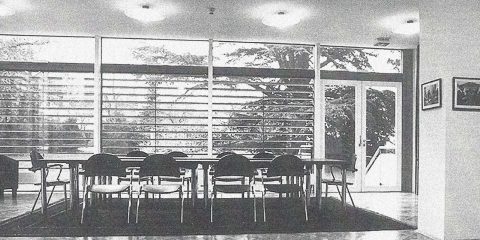Der „Ari-Rath-Preis für kritischen Journalismus“ wurde auf der Basis einer Privatinitiative eingerichtet, um im Sinne des im Jänner 2017 verstorbenen renommierten ehemaligen Chefredakteurs der Jerusalem Post Journalistinnen und Journalisten auszuzeichnen, die sich in ihrer Arbeit um eine kritische und der Wahrung der Menschenrechte verpflichtete Berichterstattung über Flucht, Vertreibung und Asyl in hervorragender Weise verdient gemacht haben.
Eine Jury von Expertinnen und Experten unter dem Vorsitz von Gertraud Auer Borea d’Olmo, der Generalsekretärin des Bruno Kreisky Forums für internationalen Dialog und enge Vertraute von Ari Rath, hat einstimmig Thomas Seifert für den „Ari Rath Preis für kritischen Journalismus“ 2021 vorgeschlagen.
Der „Ari Rath Ehrenpreis“ wurde einstimmig Gideon Levy zuerkannt.
Die Verleihung fand am 21. Juni 2021 im Bruno Kreisky Forum statt.
Thomas Seifert ist vielen Leserinnen und Lesern als außenpolitischer Experte und Wirtschaftsfachmann bekannt. Der heutige stellvertretende Chefredakteur der Wiener Zeitung war zuvor für News, aber auch Welt am Sonntag und Sunday Telegraph als Reporter in zahlreichen Krisenregionen der Welt unterwegs und hat beeindruckende Berichte verfasst: sei es im Jahr 2000 aus der Ebola Station des Spitals in Gulu, Uganda, oder aus Sierra Leone über Kindersoldaten oder über den Krieg in Tschetschenien. Mutig und engagiert berichtete er aus Afghanistan und 2003 aus dem Irak-Krieg in Mitten des US-Bombardements.
Immer stellt Seifert neben der Gesamteinschätzung der Krisensituation das Schicksal der betroffenen Menschen ins Zentrum seiner Artikel, Berichte und Kommentare. Dem ist auch hinzuzufügen, dass er immer die menschliche Perspektive der von Kriegen, Flucht und Vertreibungen und Naturkatastrophen geplagten Individuen hervorhebt, und damit den Verfolgten in dieser Welt eine Stimme verleiht.
Die Laudatio für den Preisträger hielt Oliver Rathkolb, Univ.-Prof. am Institut für Zeitgeschichte der Universität Wien und Mitglied der Jury.
Gideon Levy ist Kolumnist bei Haaretz und Mitglied der Redaktion der Zeitung. Levy kam 1982 zu Haaretz und war vier Jahre lang stellvertretender Herausgeber der Zeitung. Er ist Autor des wöchentlichen Twilight Zone-Beitrags, der die israelische Besetzung im Westjordanland und im Gazastreifen in den letzten 25 Jahren behandelt, sowie Autor politischer Leitartikel für die Zeitung.Levy erhielt 2008 den Euro-Med-Journalistenpreis und den Leipziger Freiheitspreis 2001; der Preis der israelischen Journalistenunion 1997; und der Preis der Vereinigung der Menschenrechte in Israel für 1996; 2016 gemeinsam mit dem lutherischen Pastor von Bethlehem Mitri Raheb den Olof Palme Preis für „seinen Kampf gegen Besetzung und Gewalt“. Sein neues Buch „The Punishment of Gaza“ wurde gerade im Verso Publishing House in London und New York veröffentlicht.
Die Laudatio für den Ehrenpreisträger hielt Alexandra Föderl-Schmid, stellvertretende Chefredakteurin Süddeutsche Zeitung und selbst Ar Rath Preisträgerin.
Den musikalischen Rahmen gestaltete Isabel Frey // Revolutionary Yiddish Music // Vienna
Wir bedanken uns bei WIEN ENERGIE für die freundliche Unterstützung.

